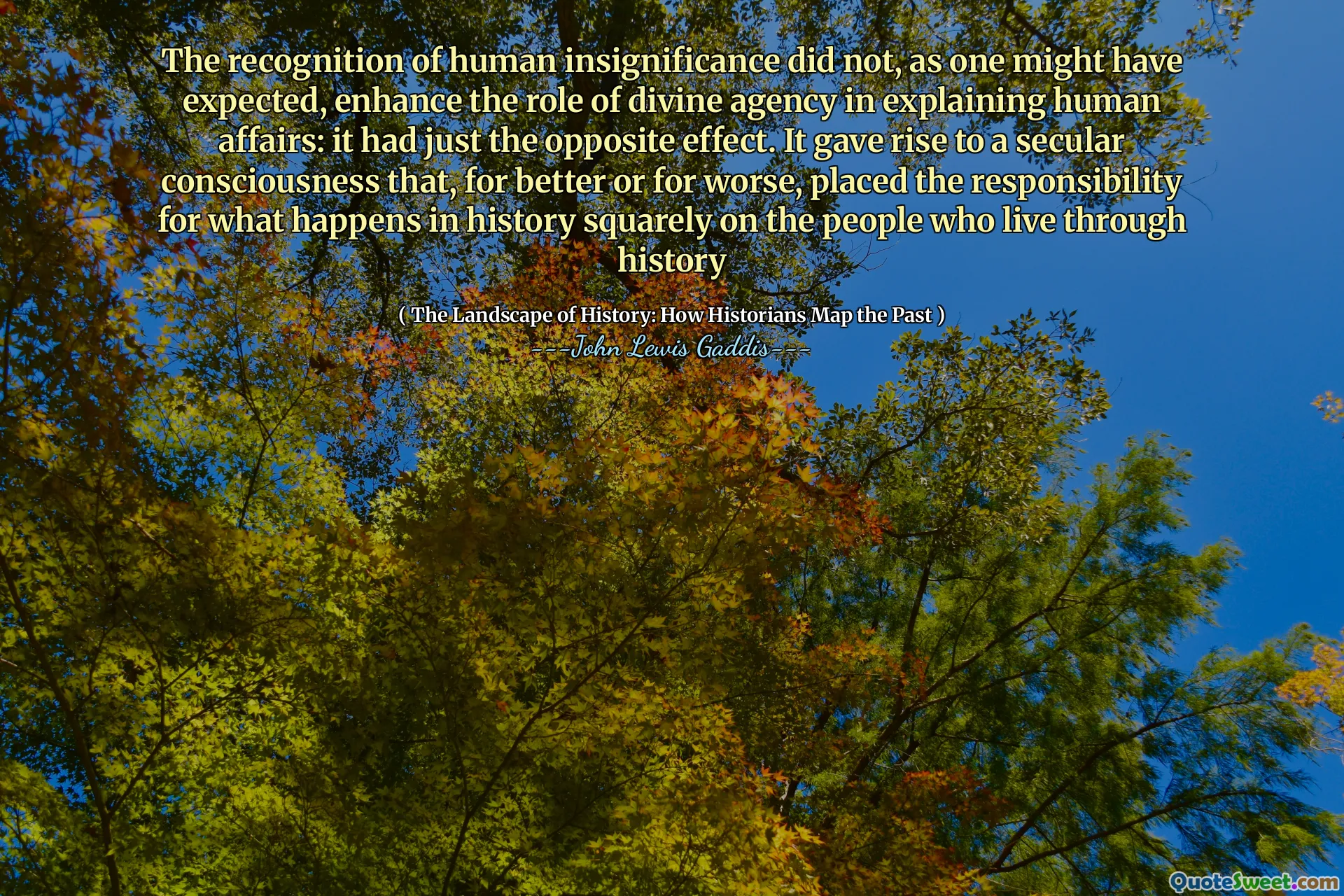
The recognition of human insignificance did not, as one might have expected, enhance the role of divine agency in explaining human affairs: it had just the opposite effect. It gave rise to a secular consciousness that, for better or for worse, placed the responsibility for what happens in history squarely on the people who live through history
This quote highlights a profound insight into the shifting perceptions of human agency and divine influence in history. One might assume that acknowledging human limitations or insignificance would lead individuals to seek solace or explanation in divine powers. However, the opposite is often true: the recognition of our smallness in the grand cosmic or historical scale tends to foster a sense of responsibility rather than dependence. This shift is fundamental in understanding the secularization of modern thought, where humans begin to see themselves as the primary agents of change rather than passive recipients of divine plans. Such a perspective empowers individuals and societies to take ownership of their actions and their consequences, emphasizing the importance of human agency in shaping the course of history. It suggests that human history is not merely a tale dictated by divine will but rather an intricate and dynamic process influenced by collective human decisions, struggles, and innovations. This realization—cemented by philosophical and historical insights—can cause both hope and anxiety. Hope emerges from the belief in the capacity for change and progress driven by human effort. Anxiety might stem from the weight of responsibility, recognizing that the outcomes hinge on human choices rather than divine intervention. Overall, this quote encapsulates a pivotal moment in intellectual history where human agency and responsibility become central themes, significantly influencing the development of secular societies and modern historiography.
- ( The Landscape of History: How Historians Map the Past )
- ---John Lewis Gaddis---






